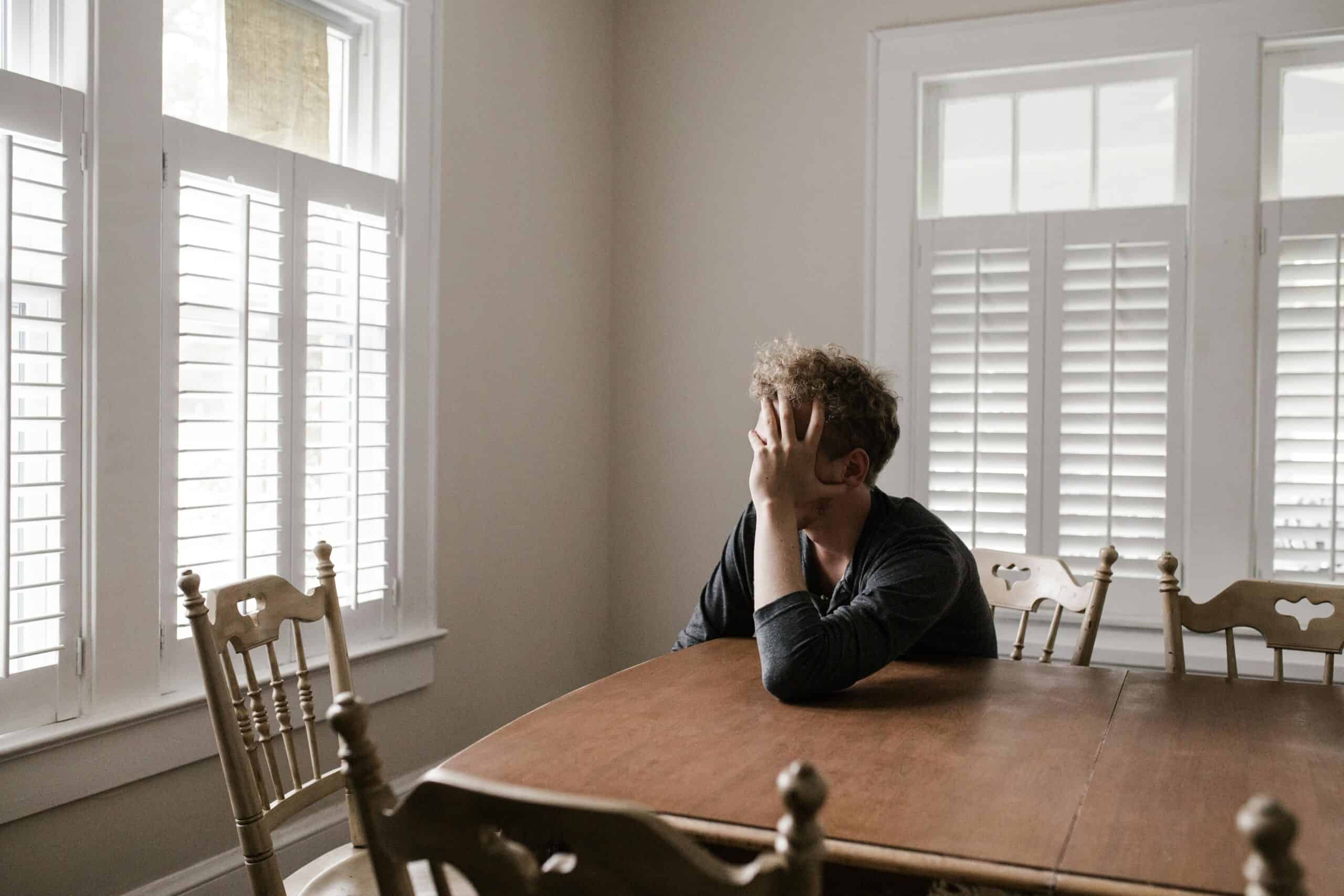Depression and Anxiety
Depression and anxiety are two of the most prevalent mental health conditions, often appearing together and sharing overlapping symptoms.
Depending on what study you site, in Switzerland, around 7% of people are currently experiencing a diagnosable level of anxiety, and another 7% are also experiencing depression at a diagnosable level. Many wonder, does depression or anxiety show up first? Understanding the interplay between these two challenges can help individuals identify early warning signs and take proactive steps toward improving their mental health.
What are depression and anxiety?
Before diving into whether depression or anxiety shows up first, it’s important to define what exactly we are meaning with these terms.
Depression
Depression is a diagnosable mental health disorder characterized by feelings of sadness, negative thinking, and a loss of interest in daily activities. It often affects sleep, energy levels, and concentration, making even simple tasks feel overwhelming.
Anxiety
Anxiety involves excessive worry, fear, or nervousness. It can cause physical symptoms such as a racing heart, sweating, or restlessness. While occasional anxiety is normal, chronic anxiety may interfere with daily life.
Both conditions frequently co-occur, and both conditions are risk factors for each other…
Does depression or anxiety cause the other?
The relationship between depression and anxiety varies based on an individual’s unique circumstances and life events. There isn’t a typical order where one condition consistently precedes the other. However, what is clear is that each condition can increase the risk of the other.
How anxiety symptoms can increase the risk of depression symptoms
Prolonged anxiety, marked by chronic stress and relentless worry, can exhaust emotional and physical resources. Over time, this depletion may foster feelings of hopelessness, potentially leading to depression.
How depression symptoms can increase the risk of anxiety symptoms
Depression often brings persistent sadness, fatigue, and a lack of motivation. These challenges can fuel excessive worry about the future, self-worth, or unresolved issues, which may evolve into anxiety.
What truly matters
Rather than focusing on which condition comes first, the key is recognizing the symptoms of either in ourselves or those we care about. Early intervention can prevent these symptoms from worsening, paving the way for recovery and improved well-being.
Early warning signs to identify:
Symptoms of anxiety
- Difficulty managing concerns or stress, feeling overwhelmed by worry
- Fatigue
- Trouble concentrating, brain fog
- Feeling irritable or edgy
- Often feeling a sense of dread, doom, or panic
- Restlessness
- Sleep problems such as insomnia
Symptoms of depression
- Sadness, hopelessness, and emptiness
- Persistent irritability or anger
- Lowered energy levels; slowed speech and movement
- Lack of self-worth, feeling guilty or helpless
- Difficulty concentrating
- Lack of motivation or loss of interest in previously enjoyed activities
- Chronic fatigue
- Sleep troubles, such as insomnia or oversleeping
- Changes in weight and appetite
Seeking professional help
Regardless of whether depression or anxiety shows up first, seeking support is critical. Symptoms of both conditions can escalate without intervention, so reaching out to a mental health professional is a proactive step toward recovery.
As I like to say in our workshops:
If you’re not feeling the way you want to feel, and this has persisted for weeks or months—beyond just a passing mood—despite your efforts to improve it, then it’s time to explore different resources. The strategies you’ve been using may not be enough, and seeking the right expert can be the game-changer.
Speaking with an expert, finding one that “fits” for you, is so often the difference that makes the difference.
An expert who
- spends their days helping people overcome challenges similar to the one you are experiencing (while recognising that every challenge is unique)
- has a history of proven results
- has a temperament that suits your temperament
is an incredible source of knowledge and actionable strategy, and is so often the most effective and efficient path to overcoming your temporary challenge, and even optimising how you think, feel and function, to levels better than even before!
(This is not hyperbole—I have seen this happen time and time again).
Conclusion: The interplay between depression and anxiety
So, does depression or anxiety show up first? The answer is not always straightforward, as each individual’s experience is different. While one condition may trigger the other, both deserve attention and care. If you’re noticing signs of depression, anxiety, or both, take action early. By seeking professional guidance, you can navigate these challenges and work toward improved mental well-being.
As I emphasize in our Mental Health First Aid workshops, we are not training to be diagnosticians. We don’t need to categorize depression or anxiety—doing so is actually counterproductive. We lack the expertise to make such judgments, and mislabeling someone with a mental illness can be both stigmatizing and misinformed.
Instead, I encourage a different approach:
Pay attention to signs of impaired well-being, and react early.
In the trainings I demonstrate that we all have that ability, while providing the strong caveat that we are not ultimately responsible for recognising signs and that many people will hide their symptoms.
What we absolutely can do is significantly increase the likelihood of recognizing signs of impaired well-being. By having the courage to act on our observations—to check in and ask someone how they’re really doing—we can provide the spark that encourages them to take the next step in overcoming their challenge and improving their quality of life.
The benefits to the individual are clear, but the ripple effect is just as powerful—it strengthens teams, fosters a healthier workplace, and ultimately benefits everyone, including the organization, as individuals are able to tap into more of their potential when they feel and function at their best.
In the workshop the nuance of this is explained, discussed, practised and experienced.
What are the treatment options for co-occurring depression and anxiety?
Left untreated, depression and anxiety can have serious repercussions, and greatly limit the quality of your life. Seeking treatment can help you learn how to manage your symptoms, cope with stress, and get back to feeling healthy and well.
Treatment options typically come under three main categories:
- psychological strategies
- physiological and lifestyle strategies
- and in some instances, medication.
I say in “some instances” medication, because improving how one processes information (i.e thinks and feels = psychological strategies), and improving things like diet, exercise, sleep habits (physiological/lifestyle strategies) are always necessary in overcoming a mental health challenge.
Medication can help in some instances, and in fact, often with severe mental illness is a very important part of holistic treatment.
However, as I like to say, “pills without the skills very rarely (if ever) works”.
There in no such thing as a happy pill that will make everyone happy all of the time!
A person needs to take a holistic approach, and learn and action new ways of thinking, feeling, and acting, in order to overcome a mental health challenge.
The most effective and efficient way of achieving this is often by teaming up with a mental health expert who aligns with your needs, and creating a personalised plan of actionable steps towards greatly improved health and well-being.
Becoming a Mental Health First Aider
MHFAiders can facilitate meaningful change without taking on the role of a psychologist.
Globally, over 8 million people have completed Mental Health First Aid training. It’s a highly effective, internationally recognized program backed by research and real-world success stories.
Find out more about how to become an MHFAider and make a difference in your organization and beyond.



